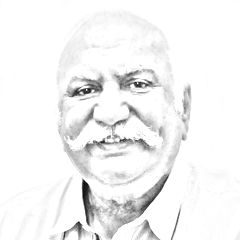The good news for the local governments in Khyber Pakhtunkhwa (KP) is that the Peshawar High Court (PHC) has directed the provincial government to constitute petroleum social development committees in each oil and gas producing district. These committees should decide about the oil and gas royalties and production bonuses payable by the exploration companies.
The idea was first mooted by me in March 2005 at the NWFP Investment Conference, that a sizeable share of the royalties on oil, gas and minerals should be shared with the districts which produce this natural wealth.
It was at the inauguration of the conference that I presented my thoughts of sharing royalties with the districts from where the natural resources were exploited. The News’ Rahimullah Yousafzai reported it as a separate news item. Then Prime Minister Shaukat Aziz who inaugurated this conference appreciated the idea, but later told me that the decision on this should be taken by provincial governments as the total royalty produce by a province is given to them by the federal government.
The crucial missing element has always been that the taxes and royalties collected from the natural resources such as mining, oil and gas exploration and production, seaports, etc. do not flow down to the real owners of this wealth. The centre shares the royalty on the oil and gas production but the provinces do not share it with the districts from where these resources are being exploited. Bear in mind that incidentally most of such resources are found in the most underdeveloped areas of the country.
As the money earned from the royalties and bonuses go to the provincial government, the districts where these resources are found and produced do not get much benefit from the exploitation of the natural resources. If these royalties and bonuses are shared with the local government of the area where they are produced, it will make the people of these areas hospitable to the exploration and production companies.
The counter argument given by those who usurp the local government’s rights is that such huge revenue sources cannot be left to the local government where they may be plundered by the district or tehsil level leadership. This is a frivolous argument. It would only hold water if provincial governments are also very clean and efficient. The media unfortunately does not follow-up on the progress of the development projects and therefore fails to play the role of a vigilant watchdog.
The provinces, with the exception of the KP government, had failed to update the Provincial Finance Commissions. National and provincial level politicians prefer the discretionary allocations they get for the development of the respective constituencies. One of the reasons why democracy has remained tenuous in Pakistan is that it hangs in the air without strengthening the local government foundation.The ruling political parties have not only tried to dilly-dally the local governments elections, but when they had to do it reluctantly under the pressure of the Supreme Court of Pakistan, they whittled down the latter’s administrative and revenue generation powers.
The local governments have to live on the budgetary allocation from the provincial government and have little elasticity to generate their own revenue. The Karachi mayor has been constantly pleading for more resources as he cannot recourse to levy new taxes and increase the old tax rates. Take, for instance, the vehicles tax collected by the provincial government which then has to be passed on to the local government who are responsible for the maintenance of roads infrastructure for these vehicles to ply on.
The taxes and royalties collected on exploration, development and use of natural resources such as minerals, oil, and gas do not flow down to real owners of this wealth
In the 90s, there was a good proposal made by a leading accountant and accepted by the then Sindh finance minister that a user-charge should be leviedon the petroleum sales level instead of vehicletax. It was proposed that the oil market companies should collect this user-charge on behalf of the local government of the cities and transfer it directly to them on a monthly basis.Unfortunately, this sound proposal was shelved by the Sindh government.
The same is true when the people of Balochistan in general and Gwadar in particular resent the development schemes in the region. The provincial and national governments are supporting it . The local population, whenever they get a chance to talk freely, express their resentment.Their genuine reasons for resentment should be addressed by building their stake in the projects.
Such measures result in a paradigm shift. Inhospitable local communities will become hospitable and there will be competition between the districts to invite investments in their areas.
Strong local governments will strengthen the foundation of democracy as the people at the grassroots level will have the stakes in the system. The military governments had not only survived on the strength of their gunpower, but they also established local governments to reach out to the people. All democrats believe in the maximum autonomy for the federating units. But they did not approve the military government by-passing the provincial structure and going down to the local governments directly.
The writer can be reached at ayazbabar@gmail.com
